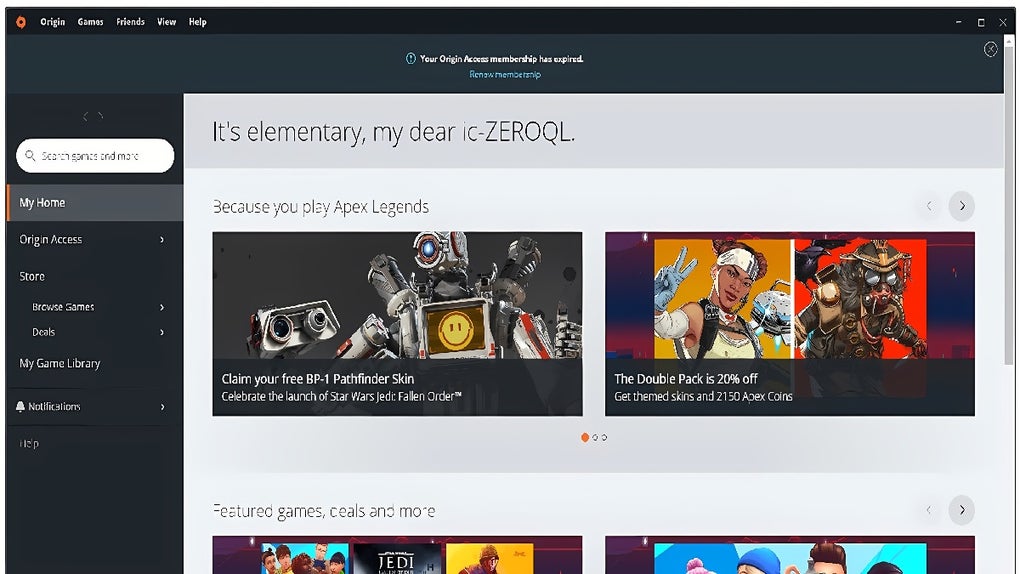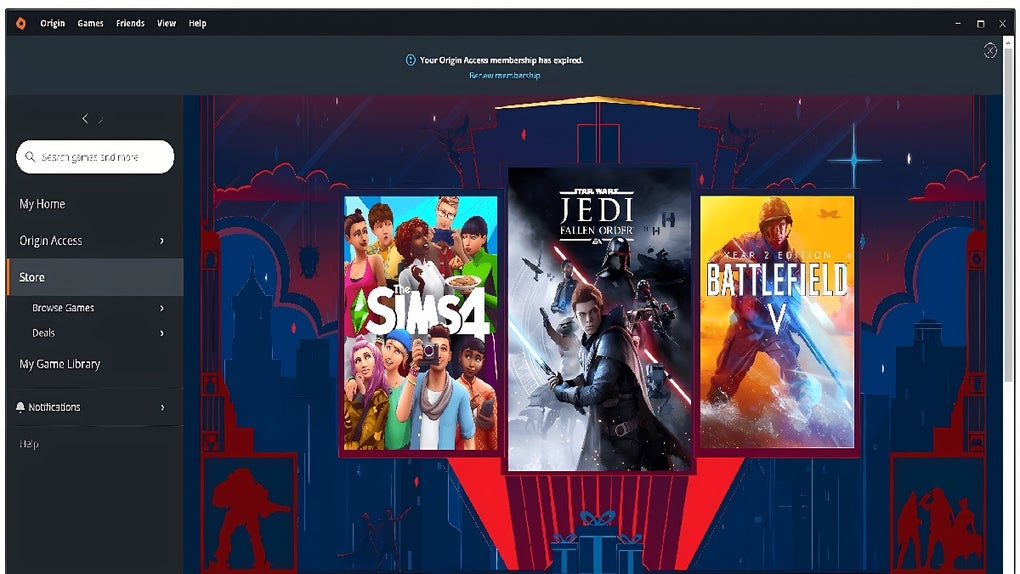EA Origin, once a dominant force in PC game distribution, has undergone significant changes and faced considerable criticism. This review delves deep into its functionality, strengths, weaknesses, and alternatives, providing a comprehensive overview for both seasoned gamers and newcomers considering using the platform.
Origin’s Core Functionality: Accessing the EA Gaming Universe
Origin serves as the primary digital distribution platform for Electronic Arts (EA) games. For most EA titles, an Origin account is mandatory for downloading, playing, and managing games. This necessitates creating an account and logging in before accessing any game within their vast catalog. The platform’s core functions revolve around game acquisition, library management, and social interaction within the EA ecosystem.
The Origin client itself boasts automatic updates, ensuring users always have access to the latest game versions and patches. This automatic update feature extends to both the client software and the games themselves, streamlining the gaming experience and eliminating manual update hassles. However, the convenience of automatic updates is often counterbalanced by reports of lengthy download and update times, which can be frustrating for users with limited bandwidth or time. Additionally, forced updates, even when a game isn’t currently being played, can consume significant system resources.
The program’s system requirements are relatively modest, enabling compatibility with most modern computers. This widespread compatibility, while a positive, has led to concerns among some users regarding the client’s resource management. Reports suggest that Origin might consume more system resources than necessary, potentially impacting overall system performance for users with less powerful machines.
The EA Game Catalog and Origin Access Subscription

Origin’s primary strength lies in its exclusive access to EA’s extensive game catalog. This includes popular franchises like The Sims, Battlefield, FIFA, Need for Speed, and many more. While the platform hosts some non-EA titles, its core value proposition rests firmly on delivering the complete EA gaming experience. This exclusivity, while beneficial for EA game enthusiasts, significantly limits the platform’s overall appeal to gamers interested in titles from other publishers.
To further incentivize users, EA offers Origin Access, a subscription service providing access to a curated library of over 70 older games, with the library constantly evolving. This subscription also provides a 10% discount on all purchases made through the Origin store. A premium tier, Origin Access Premier, offers additional perks, including early access to new EA titles days before their official release. The subscription model is undoubtedly attractive to users who wish to explore a wide range of EA games without incurring the cost of individual purchases. However, the value of the subscription heavily depends on the individual gamer’s gaming preferences and the titles included in the subscription’s library.
User Experience and Social Features: A Mixed Bag
Origin’s user interface aims for a streamlined experience, boasting a clearly organized game library and a straightforward store interface with easily identifiable purchase buttons. The store also features effective filter systems, facilitating targeted searches for desired games. These features significantly enhance usability, making it relatively easy to find and purchase games. Nevertheless, user reviews consistently highlight performance issues, with complaints ranging from slow loading times and frequent crashes to difficulty launching games.

The platform’s social features allow users to connect with friends, participate in multiplayer games, and send messages. These features enhance the social aspect of gaming but remain secondary to the primary function of game distribution and management. While the friend system might foster online interactions within the EA community, many users find it less developed than comparable features offered by other platforms, lacking sophisticated features such as community groups or detailed profile customization.
Competitors and Alternatives: A Look Beyond Origin
Compared to competitors like Steam and the Epic Games Store, Origin suffers from a significantly smaller game catalog and less frequent sales. This restricted selection, coupled with a perceived lack of competitive pricing, leaves Origin at a disadvantage for gamers seeking broader game choices and attractive discounts. Steam, in particular, enjoys a vastly larger library, more frequent sales, a robust community system with groups and forums, and advanced features like in-game item marketplaces. The Epic Games Store also presents a competitive alternative, frequently offering free games and attractive sales promotions.
Other relevant alternatives include Ubisoft’s Uplay platform, which provides exclusive access to Ubisoft games, and GOG Galaxy, which caters to users interested in DRM-free games, both classic and contemporary. These alternatives cater to different gaming preferences and offer distinct advantages not found on Origin, further highlighting the platform’s limitations concerning game selection and overall community engagement.
User Reviews: A Chorus of Criticism
User reviews consistently paint a critical picture of Origin. Recurring complaints highlight the platform’s frequent crashes, slow loading times, and troublesome update processes. Users express frustration with its tendency to consume excessive system resources and the occasional difficulty launching games. Many lament the lack of effective customer support and the perceived inflexibility of the system, especially regarding account recovery and game access after subscription expiry. The overwhelming sentiment among users reflects significant dissatisfaction with Origin’s performance, reliability, and overall user experience.
The criticism extends to the Origin Access subscription, with many feeling that the value proposition doesn’t justify the recurring cost. While the early access and discounts are attractive to some, others deem the library of games too limited or the available titles not compelling enough to warrant the monthly fee. This lukewarm response toward the subscription service further underscores the platform’s shortcomings.
Conclusion: A Platform in Need of Revitalization
EA Origin, despite its exclusive access to EA’s expansive game library and the added convenience of Origin Access, suffers from persistent performance issues, a limited game catalog compared to competitors, and a generally negative user experience. The overwhelming negative feedback from users indicates a significant need for improvements in reliability, performance optimization, customer support, and the overall platform functionality. While the platform remains necessary for accessing the bulk of EA’s PC game catalog, its overall performance and user satisfaction remain far below industry standards set by its more successful competitors. The future success of Origin heavily hinges on addressing these long-standing user concerns and providing a significantly improved and more reliable gaming experience.
File Information
- License: “Free”
- Latest update: “May 23, 2023”
- Platform: “Windows”
- OS: “Windows 10”
- Language: “English”
- Downloads: “2.6M”
- Size: “2.36 MB”
















